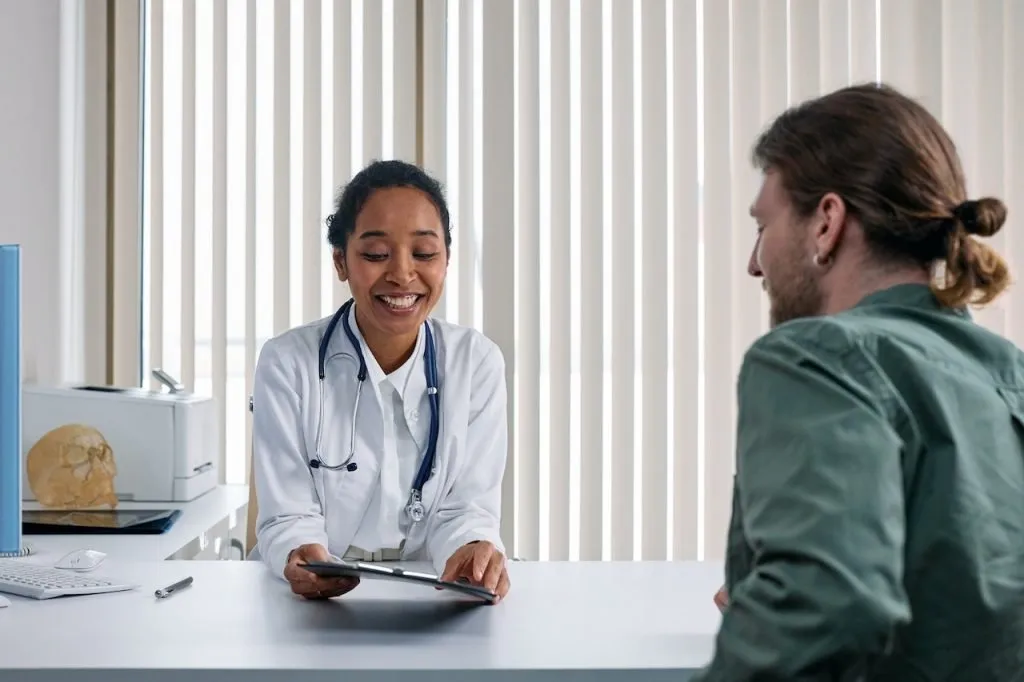24/7 Helpline:
(866) 899-221924/7 Helpline:
(866) 899-2219
Learn more about Drug Detox centers in Marin County
Drug Detox in Other Counties

Other Insurance Options

UMR

MHNNet Behavioral Health

Meritain

GEHA

Optum

American Behavioral

AllWell

Absolute Total Care

Health Net

Molina Healthcare

PHCS Network

Multiplan

EmblemHealth

Coventry Health Care

Ambetter

BHS | Behavioral Health Systems

Oxford

Access to Recovery (ATR) Voucher

Amerigroup

Covered California

Teen Solutions
Teen Solutions is a private rehab located in Mill Valley, California. Teen Solutions specializes in ...

Marin Treatment Center
Marin Treatment Center offers outpatient and intensive outpatient treatment for individuals with alc...

Larry Fritzlan Recovery Services
Larry Fritzlan Recovery Services offers outpatient and intensive outpatient treatment for individual...

Howard Kornfeld and Associates
Howard Kornfeld and Associates is a non-profit rehab located in Mill Valley, California. Howard Korn...

Marin General Hospital – Behavioral Health
Marin General Hospital – Behavioral Health is a private rehab located in Kentfield, California. Mari...

Serenity Knolls Treatment Center
Serenity Knolls offers inpatient treatment for individuals with alcohol and/or substance addiction. ...

Alta Mira Recovery Programs
Alta Mira Recovery Programs is a private rehab located in Sausalito, California. Alta Mira Recovery ...

Kaiser Permanente – Chemical Dependency
Kaiser Permanente – Chemical Dependency is a private rehab located in San Rafael, California. Kaiser...

Marin County Mental Health and Family Services
Marin County Mental Health and Family Services is a public rehab located in San Rafael, California. ...

Reflections Executive Rehab Facility
Reflections Executive Rehab Facility is a drug and alcohol rehab located in Novato, CA. They provide...

Larry Fritzlan Recovery Services – Market Street
Larry Fritzlan Recovery Services - Market Street offers outpatient and intensive outpatient treatmen...

Bay Area Community Services – Marin Counseling Clinic
Bay Area Community Services - Marin Counseling Clinic provides psychotherapy services for those indi...

Avery Lane
Avery Lane is a private rehab located in Novato, CA. Avery Lane specializes in the treatment of Subs...

Bayside Marin Treatment Center
Bayside Marin Treatment Center is a premier addiction treatment provider for adults, located in San ...

Paradigm Treatment – Teen & Young Adult Mental Health
Paradigm Treatment provides residential & telecare treatment for teens 12-17 and young adults 18-26 ...

Heartwood House Detox
Heartwood House Detox is a private rehab located in San Rafael, California. Heartwood House Detox sp...

Beliefs Transformed
Emotional and behavioral concerns are often attributed to our subconscious limiting beliefs. This is...

Western Judicial Services
Western Judicial Services offers outpatient substance abuse treatment for the Florida Department of ...

Inova Behavioral Health Outpatient Center at Merrifield Center
Inova Behavioral Health Outpatient Center at Merrifield Center is dedicated to provide mental health...








































































































Marin Drug Recovery
Marin Drug Recovery offers outpatient treatment for individuals with alcohol and/or substance addict...

Positive Changes – Outpatient
Positive Changes – Outpatient is a private rehab located in Sausalito, California. Positive Changes ...

Marin Outpatient and Recovery Services
Marin Outpatient and Recovery Services is a private rehab located in San Rafael, California. Marin O...

AA – Alcoholics Anonymous – Mission San Rafael Arcangel
AA – Alcoholics Anonymous – Mission San Rafael Arcangel is a non-profit rehab located in San Rafael,...

North Bay Recovery Center
North Bay Recovery Center is a private rehab located in San Rafael, California. North Bay Recovery C...

Marin Services for Women
Marin Services for Women is a private rehab located in Greenbrae, California. Marin Services for Wom...

Marin Services for Men
Marin Services for Men is a private rehab located in San Rafael, California. Marin Services for Men ...

Addiction Recovery Consulting Services
Addiction Recovery Consulting Services helps families facing the ravages of addiction through the Fa...

Marin County Mental Health Services – Outpatient
Marin County Mental Health Services – Outpatient is a public rehab located in San Rafael, California...

Paradigm San Francisco
Paradigm San Francisco is a residential treatment specialized in adolescents who are struggling with...

DBT Psychology Center of Marin
DBT Psychology Center of Marin is a private rehab located in San Anselmo, California. DBT Psychology...

Helen Vine Detox Center
Helen Vine Detox Center is a private rehab located in San Rafael, California. Helen Vine Detox Cente...

Buckelew Programs
Buckelew Programs offers outpatient services for individuals with alcohol and/or substance addiction...

AA – Alcoholics Anonymous – Nature Coast Intergroup
AA – Alcoholics Anonymous – Nature Coast Intergroup is a non-profit rehab located in Inverness, Flor...

Inova Behavioral Health – Outpatient
Inova Behavioral Health – Outpatient is a non-profit rehab located in Fairfax, Virginia. Inova Behav...

Life Line Counseling Center
Life Line Counseling Center is a private traditional rehab located in Fairfax, VA. Life Line Counsel...

Alcohol Safety Action Program
Alcohol Safety Action Program - Page Avenue offers outpatient treatment for individuals with alcohol...

AA – Alcoholics Anonymous
AA – Alcoholics Anonymous is a non-profit rehab located in Fairfax, Virginia. AA – Alcoholics Anonym...

Nascoot Rehabilitation Services
Nascoot Rehabilitation Services is a private rehab located in Fairfax, Virginia. Nascoot Rehabilitat...

Al Anon Family Groups
Al Anon Family Groups is a non-profit rehab located in Fairfax, Virginia. Al Anon Family Groups spec...

Discovery Mood & Anxiety Program – Fairfax
Discovery Mood & Anxiety Program – Fairfax is a private rehab located in Fairfax, Virginia. Discover...

Encore Recovery Solutions
Encore Recovery Solutions is a private rehab located in Fairfax, Virginia. Encore Recovery Solutions...

Phoenix House – Counseling Center
Phoenix House - Counseling Center is located in Fairfax, Virginia. Phoenix House - Counseling Center...






























































































































































































































































